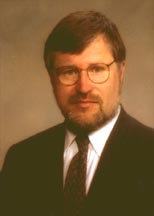Killing the infidels"—that is, non-Muslims, specifically Jews and Christians—"is a good thing that will get you to heaven."
That line from the latest tape from Osama bin Laden was the most telling, though it received little attention from the media, which insist on believing, against all evidence, that all religions are equally valid.
Western secularists have a hard time comprehending the mindset of radical Muslim terrorists, and so misunderstand and underestimate them. Political and economic explanations, rational analyses of psychology and culture, cannot account for what terrorists are capable of. With few exceptions, the rank-and-file terrorists, who join the martyr brigades and blow themselves up to take out some infidels, are trying to attain salvation.
Even mainline, nonterrorist Islam is a religion based on works-righteousness. As such, it is capable of inspiring the highest morality. Escaping hell and attaining paradise is a matter of doing enough good works. In judgment, according to one Islamic authority, one's deeds are weighed in a balance. Those who have done more good deeds than bad will go to paradise. Those whose bad deeds outweigh the good go to eternal punishment.
It is hard, though, to keep all of the laws of the Quran, which regulates nearly every sphere of personal and social behavior, and those failures can have eternal consequences. Allah, though, is merciful and can forgive. But forgiveness itself tends to be contingent upon what a person does.
Islam has no mediator, no intercessor. Muslims have no sacrifice to atone for what they have done. Certainly not God coming down from heaven to take their sins upon Himself. God would never become man. The Quran sternly anathematizes those who believe that God has a Son. And Muslim theologians specifically teach that there is no assurance of salvation, that one can never know until the last day whether he is worthy to enter paradise.
There is, however, a major exception—a gospel, of a sort. Those who die as martyrs, those who die while waging jihad against the enemies of God, will enter paradise instantly, all their sins washed away by their own blood and the blood of the infidels they have shed.
Christians can relate to much of the Muslim zeal for moral perfection. But whereas Muslim law enforces an external legalism, enforced by rigid societal controls, Christianity changes the heart through faith in Jesus Christ so that the believer, growing in sanctification, no longer desires to do what is wrong. Christianity offers freedom from the bondage of sin.
This, in turn, has meant that Christianity, in its social influence, has brought political freedom. Whereas Islamic countries, preoccupied with controlling their populations lest they violate Islamic law, have tended to install totalitarian regimes.
Those who have grown up under the restrictions of a Muslim regime, then come to the morally decadent, post-Christian West, often fall into serious sin. Their sinful flesh, no longer under external restrictions, has free reign. Those who come from a society where women are covered from head to toe, in an attempt to make it impossible for men to lust after them, now, with few inner controls, find themselves ogling the flesh-baring fashions favored by many Western women and enjoying the sex-saturated entertainment industry. They sin, but they still believe, resulting in enormous guilt and fear.
It is no wonder that so many Islamic terrorists have lived or still live in the West. The moral corruption that they fell into only inflames their hatred of the culture that they are addicted to.
Mohammed Atta, the leader of the 9/11 terrorists, when he came to study at Hamburg, Germany, reportedly developed a serious pornography addiction. This was when he started attending the radical mosque, where he heard the gospel of jihad.
His terrorist colleagues, in the days before 9/11, frequented strip clubs, buying lap dances and drinking alcohol, any one of which would earn them eternal damnation. But, according to writings found after their attacks, they were confident in their salvation. By crashing the airplanes and murdering thousands, they were offering up human sacrifices and atoning for their own sins.
Our Muslim adversaries are true believers in their theology. They are confident in their religion, for which they are eager to die. This kind of zeal creates formidable opponents to the dithering relativism of the secularists and to lukewarm Christianity.
Muslims consider Christianity a weak religion—witness the moral bankruptcy they see in the Western world. This is a painful indictment against the contemporary church and the failure of Christians today to influence their culture as they once did.
